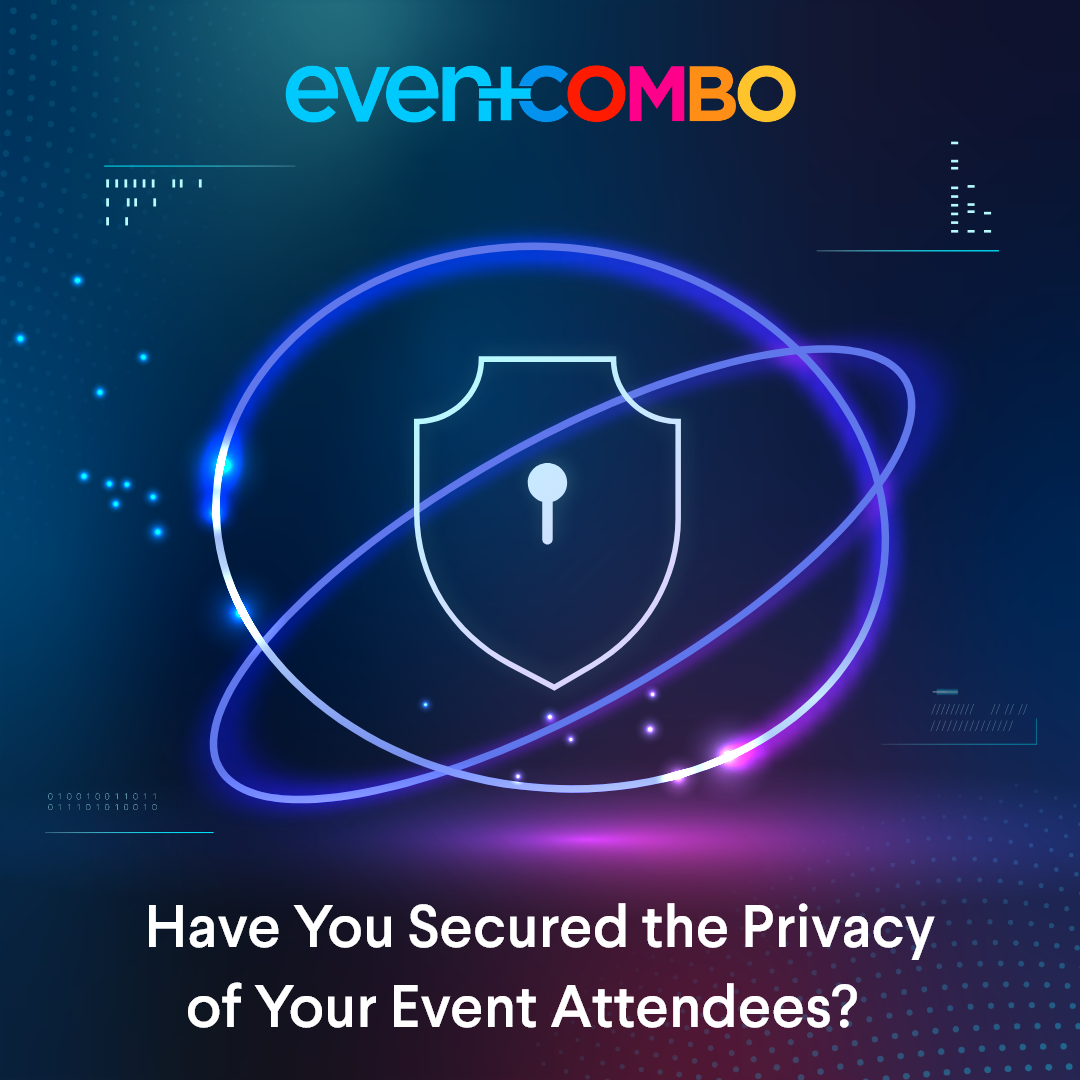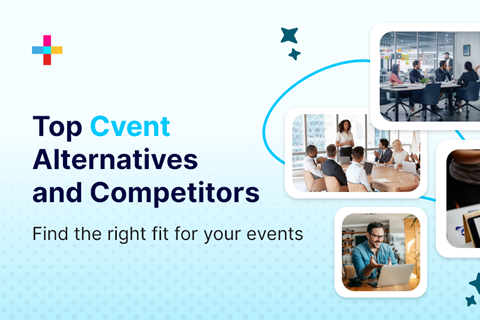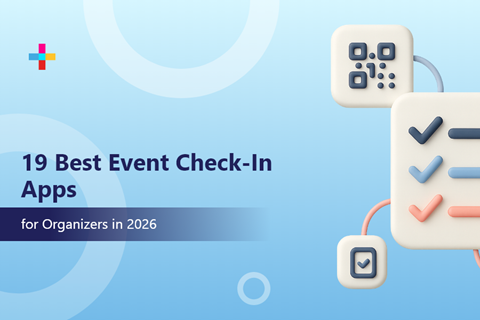

Event data breaches occur due to poor decision-making of organizations and an unguarded approach that often makes things worse otherwise what would have been a preventable data cyber-attack. Cybercrimes are happening at a breakneck pace in today's digital world. However, a well-informed security strategy helps in warding off sophisticated attacks with catastrophic consequences. It involves recognizing the importance of event data security and taking steps to keep attendee data secure and private.
If you have been neglecting security till now, this blog will offer helpful guidance to keep you safe from any cyber threats.
What Is Data Privacy in the Context of Events?
In the context of events, data privacy entails protecting the sensitive information of your attendees. These include names, email addresses, phone numbers, date of birth, payment, and demographic information. It also consists of special details, such as dietary preferences and disability information.
Keeping attendee data safe is one of the top ways to win your audience's trust and improve future events. Event planners should take care of their attendee's data because they are prone to malicious attacks by cybercriminals.
Note that hackers target both big and small brands hosting any kind of event, be it virtual, in-person or hybrid. So, as event planners or managers, you need to proactively determine and remove vulnerabilities in your data storage.
How Serious is the Threat?!
The importance of data security has increased immensely in recent years. The 2020 Tokyo Games, for example, witnessed a staggering 450 million attempted cyberattacks were attempted.
Fast forward, the barcode data for thousands of tickets to Taylor Swift’s Eras tour was claimed by hackers who then demanded Ticketmaster, the ticket sales company that sold the concert's tickets to pay millions in ransom money.
Earlier this August, the Grand Palais exhibition hall in Paris, which is hosting Olympic events, suffered a ransomware attack. The attack affected its central computer system and impacted 40 French museums.
Thus, event data security is becoming crucial as we progress through the AI age. Now with regulations such as the GDPR of the European Union and the subsequent California Consumer Privacy Act (CCPA) in place, event planners need to comply with data regulations and be extra careful towards averting data loss, else they can be subject to hefty fines and penalties.
What Are the Main Causes for Event Data Security Attacks?
Data breaches and cybercrimes at major events have several motives. These include the following:
1. Cause Disruption and Chaos
In most attacks, hackers target the personal and sensitive information of attendees to cause chaos, confusion, and disruption at high-profile events and embarrass the organizers. Attendee information through registration lists, sensitive data, such as the religion, ethnicity, and political ideology of attendees, and payment information are significant for any event organizer and company. If it goes into the wrong hands, it will naturally cause much distress and confusion, sowing seeds of discord. Most hackers want this to happen to damage the reputation of companies.
2. Financial Gain
Cyber attackers may try to exploit the increased online activity and transactions around major events, such as the Olympics, World Cups, or political conventions. The aim is to steal data, disrupt operations, or extort money through ransomware. The barcode data of thousands of attendees claimed by hackers at Eras Tour is an infamous example. The hackers demanded a heavy ransom from Ticketmaster and threatened to leak the barcode data if the company did not pay the ransom.
3. Hacktivism
Hacktivism means cybercrimes that often-unauthorized access to systems for politically or socially motivated ambitions. These include making a statement in support of a cause or against government agencies or organizations. This phenomenon is on the rise because of the increased polarization of the political landscape.
Denial-of-service attacks (DoS), data breaches, and dogging (publicly exposing private data about individuals or companies to harm their reputation) are common examples of hacktivism. The greatest number of hacktivist activities were witnessed in the first quarter of 2023 and 7% of North America was affected by it.
7 Expert Tips to Ensure the Safety of Your Event and Attendee Data
1) Comply with GDPR Regulations
Firstly, you should collect, process, and use the personal information of your attendees according to the GDPR laws. Follow our detailed guide on GDPR for event planners to find actionable steps and strategies. Building a strategy for obtaining active consent of attendees to share their personal data is crucial to comply with the new laws. Also, avoid unnecessary data requests to boost confidence in your attendee base.
2) Use Secure Platforms & Registration Systems
The event technology you use in the form of registration or event management software should be fully secure. It should be compliant with data protection laws and use robust encryption protocols to guard attendee information. For instance, our all-in-one event management solution is compliant with GDPR, CCPA, and SOC 2 Type I and SOC 2 Type II certifications. These are the top standards for security, availability, processing integrity, confidentiality, and privacy.
3) Use Multi-Factor Authentication (MFA)
MFA provides more security layers and is important especially when organizing events and large conferences where consumer data is plentiful. In case of breaches, hackers will have to re-authenticate themselves in various ways.
MFA is easy to implement and intuitive and meets all regulatory compliances that ensure attendees' security. Because MFA comes with a Single Sign-On, it eliminates the need to store and create multiple passwords, and the risk of data loss due to password misplacement will be gone.
Note that if you do not use MFA, ensure that you change your event management system passwords frequently. Not changing the passwords frequently increases the risk of data breaches.
4) Check Payment Gateway Security
When selling tickets, it's essential to ensure that your payment processing happens securely. So, use credible payment gateways that adhere to PCI DSS. The gateways facilitate quick and secure transaction processing quickly and securely and lower delays in payment authorization. Thus, you offer a glitch-free and fast checkout experience. Another related piece of advice is to never store payment information locally.
5) Arm Your Event Team
Instill that event discipline within your team by making them aware of all possible adversities of a data breach. Train your team on every aspect, right from screening attendees and guests to ensuring undivided attention on systems and identifying malicious emails and phishing attacks. Ensure you and your team are updated about applicable data regulations and national and international security standards.
6) Have a Strong Incident Response Plan
A robust data breach incident response plan minimizes the consequences of the incident. Such a plan helps you in cases of sophisticated breaches that your systems cannot detect. It involves training the employees, employing the necessary technology, and having data backups. Read this post to know how to act if a data breach occurs and implement the strategies.
7) Make Your Security Measures Apparent
As an event organizer, you would want to avert the breach before it occurs. So, by installing security checkpoints and employing security personnel at regular intervals, you ensure the effort to breach is restricted. Beside strengthening your security checkpoints, ensure that all your systems, registration lists, or laptops are guarded. Do not leave them unattended.
Conclusion
Data security at events is crucial to winning the trust of your attendees. Event planners need to show organizational integrity by securing attendee and stakeholder’s data. If not done, event attendees will have a lot more reasons for distrust which may end up in non-participation and withdrawals from signing up for the event.
Therefore, event planners must recognize the growing importance of data security at events and shoulder the responsibility of protecting personal and sensitive attendee data. If you're planning to host an event and want to feel assured of data safety, use Eventcombo's GDPR-compliant event management platform. Schedule a free demo here to learn more.

Professional certifications for event planners do more than provide a solid foundation in the field; they offer valuable exposure to the dynamic world of event planning and insights from prominent industry experts.

Choosing the right event management platform is vital for event professionals navigating the growing demand for in person , virtual, and hybrid events. Modern planners need solutions that offer robust features,...

Attendees don't notice good check-in. They only notice bad check-in. And planners know check-in is the first moment where their behind-the-scenes work gets exposed.